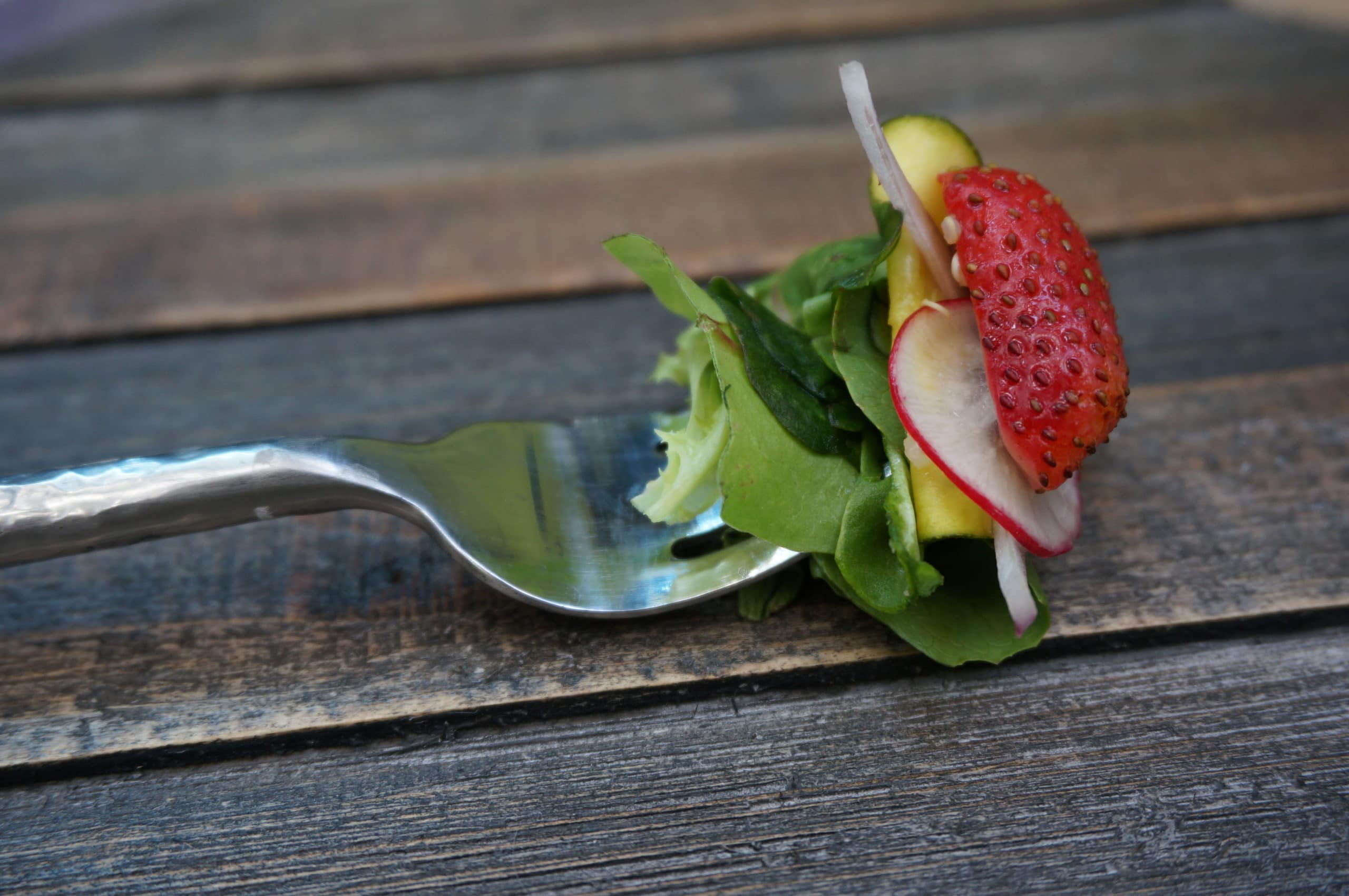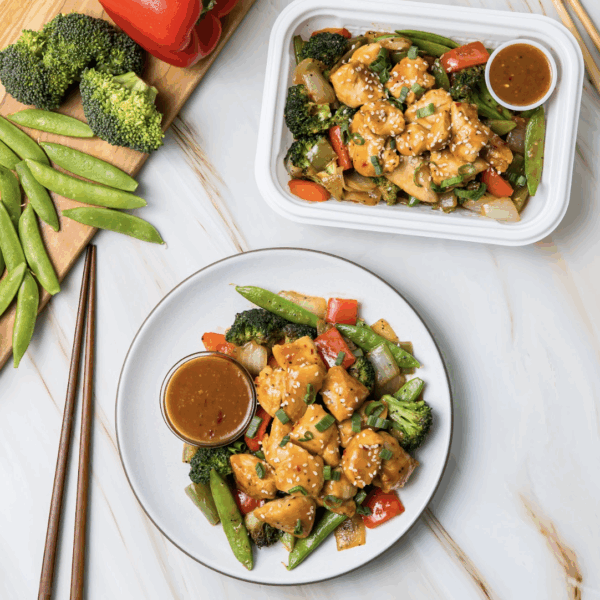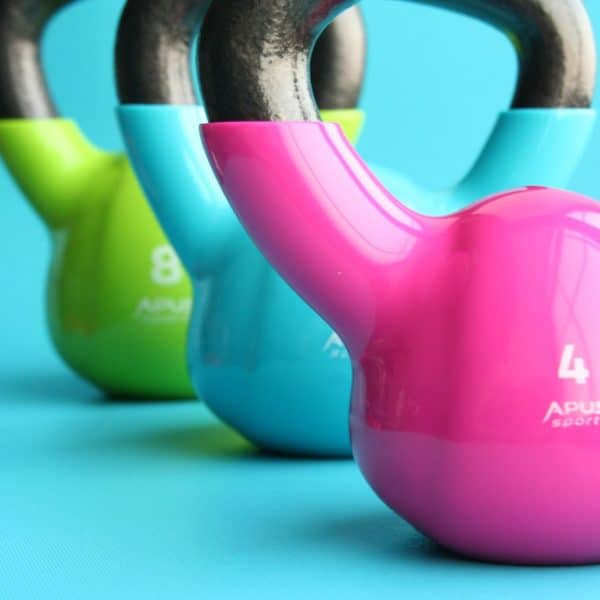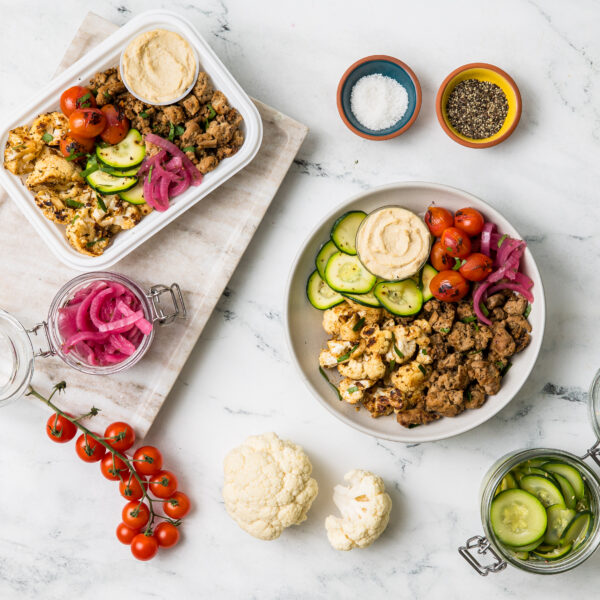Plant-based is having a moment, with both products & people proudly proclaiming their plant-based focus. But what does the term really mean, what are the pitfalls, & how can you make this way of eating work for you? Our lead RD, Sam, is hopping on the blog today to give you all the details.
What does it mean to be plant-based?
A plant-based diet is one with a heavy focus on plant foods — vegetables, fruits, nuts & seeds — but it doesn’t explicitly avoid animal products. Though the idea of a plant-based diet is often equated with a vegan diet, they’re actually two separate things.
For example, there are some who follow a vegetarian or vegan diet and don’t actually eat an array of plant foods.Instead, they eat a majority of processed products (like fake “meats”, processed snacks, etc).
While it’s true that those who are vegan consume no animal products, those who are plant-based are simply focused on eating real food that is veggie-focused. They may still eat animal products. I think of it more in line with Dr. Mark Hyman’s Pegan diet. Pegan is short for ‘paleo vegan’ and is a combination of both lifestyles. It’s a way of eating that combines high amounts of vegetables and fruits, high-quality fats, and sustainably raised animal products.
What do you eat on a plant-based diet?
On a truly plant-based diet, someone would make at least ½ their plate vegetables. Other things to incorporate include:
- Fruits
- Healthy plant-focused fats (like avocado, avocado oil, extra virgin olive oil, nuts/seeds, coconut oil, coconut milk, and more
- Some unprocessed grains and legumes
- High-quality animal protein
If consuming animal protein, I recommend starting with 3-4oz per meal & adjusting based on activity level, individual needs & satiety.
Sam’s recommendation: for a healthy approach to plant-based eating, continue incorporating animal products while focusing on increased vegetable & healthy fat consumption. While some vegans don’t experience any issues with the diet, some may develop health problems over time due to nutrient deficiencies or inadequate intake. It often takes months (or even years) for symptoms of deficiencies to set in after removing animal products. Having said that, everyone is different, & you may feel great eating a veggie-centric vegan diet.
Every dietary pattern should include vegetables, even keto!
Almost every health expert can agree that eating more vegetables is good for the majority of people. In fact, the positive results many people feel when cutting animal products from their diet may actually be due to removing processed foods & including more vegetables, fruits, & other non-processed foods in their place. Almost every diet (even keto!) should include ample vegetables at each meal.
Potential pitfalls
Since animal protein is highly bioavailable (this refers to how easily the protein is digested, absorbed & utilized by our bodies) & nutrient-dense, I don’t recommend most people entirely eliminate animal products. Since the nutrients in animal products are more bioavailable than those in plants, and some nutrients found in animal products aren’t found at all in plants, you may need to supplement. Some of those nutrients include vitamin B12, other B vitamins, omega-3s, zinc, & iron.
Regenerative agriculture
Meat that is raised in a sustainable, regenerative way is beneficial for the environment & for our health. Not only do well-raised animals restore ecosystems & sequester carbon, but their meat is also incredibly nutrient-dense with nutrients that are critical to our health.
At the end of the day, listen to your body & find what works for you. We’re all unique and will have slightly different needs as a result. Want to figure out what works for you without the shopping, cooking or cleaning? Give our meal plans a try today.





Leave a Reply
No Comments